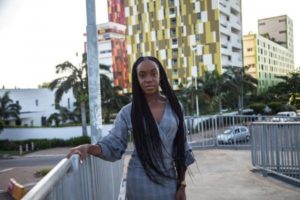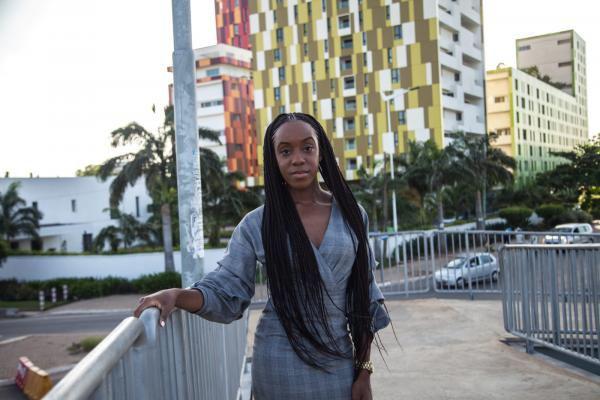 Lakeshia Ford decided she was going to pack up her life and her budding career and move from New Jersey to Ghana, her family could not understand why she wanted to make the trek to a country thousands of miles from home.
Lakeshia Ford decided she was going to pack up her life and her budding career and move from New Jersey to Ghana, her family could not understand why she wanted to make the trek to a country thousands of miles from home.
Even more surprising, to some, was Ford’s reason: the shooting death of Michael Brown by a police officer in Ferguson, Missouri.
The incident, which set off protests across the United States, was a tipping point for the 30-year-old Ford and her relationship with the country of her birth.
“Mike Brown got shot and it just put this huge distaste in my mouth for, like, the country and the flag and what it means to be American and representing the American flag,” Ford says. “I felt very detached from that identity. I felt very excluded.”
While that feeling was certainly shared by many across the country, Ford is part of a small but growing group of black Americans who have become so fed up with racism in the United States that they have decided to move to Africa.
“I remember a moment. I remember sitting on my bed and visualizing like … a transition,” Ford recalls. “You know that image of Mike Brown with the blood, and he was just [lying] there [in the street]?
The animation in my mind was like he rose with that blood and turned into water, and I floated back. Well, I didn’t float back, but basically I use that blood in the water to get back to Africa.”
Four years later, Ford sits in a trendy hotel bar in Accra, the capital of Ghana, a small coastal nation in West Africa. As dusk settles, she sips water after a long day of work while other patrons laugh and catch up with friends.
A communications professional with a background in finance and international relations, Ford once dreamed of serving as a foreign diplomat, but she soured on the idea of representing the United States abroad.
Instead, she came here and set up her own business, Ford Communications, a strategic communications and public relations boutique. Ford found a niche servicing Ghana’s booming tech industry.
The daughter of Jamaican immigrants who moved to the United States in the 1980s, Ford spent her formative years in East Orange, New Jersey. Those years were tough but grounded in the American dream. “I never knew we were poor,” she says. “I had everything that I needed.” She excelled at academics, receiving a bachelor’s degree from Spelman College and a master’s from American University. Internships took her to places like China, South Africa, and Ghana, which she first visited in 2008.
“I had the time of my life, and I felt more [at] home here than I ever did in the States and Jamaica,” she recalls. “It was just this really weird internal experience that was just like … peace.” She returned in the summer of 2013, during graduate school, to work for the United Nations information center in Accra, and again in 2014, as a Boren Fellow.
The next year, after her vision following the Michael Brown incident, she decided to try moving to Ghana, despite having no job or prospects lined up — a decision that did not sit well with her family.
“Americans, you know how people think about Africa,” she says. “They think it’s all jungles, people living in trees. It’s so crazy how that narrative has survived.”
Now, Ford works with firms like the financial tech company Mazzuma, which launched a cryptocurrency to make mobile payments easier, and the data mining company Viotech. She works out of a suburban coworking space, and after waking up at 5 a.m. to pray and meditate, she gets her emails done before driving off to meetings. Sometimes she jumps on a motorbike to avoid the snarl of cars that choke the city.
Source : The Week


